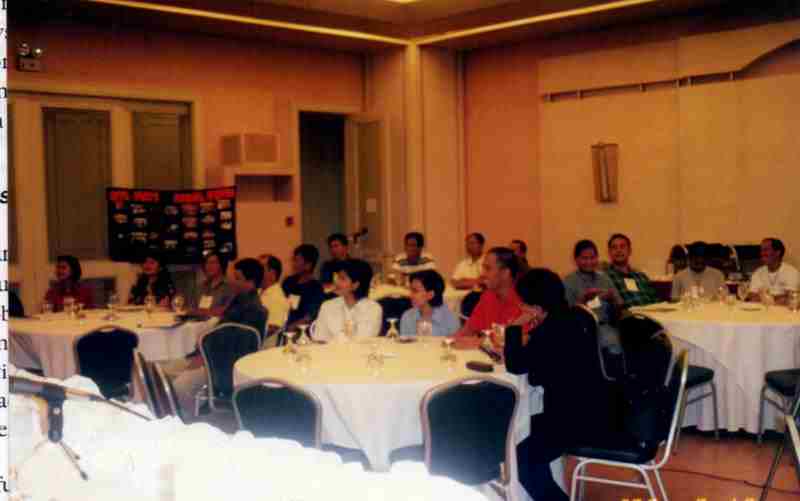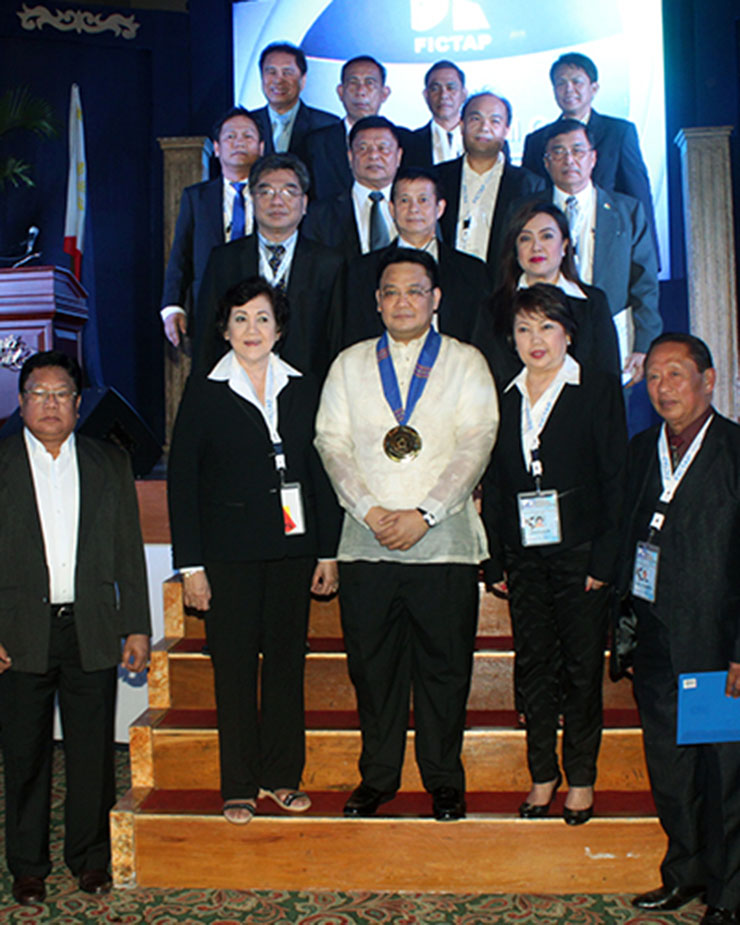Who we are
From FICAP (Federation of International Cable TV Associations of the Philippines), the organization has changed its name to FICTAP (Federation of International Cable TV and Telecommunications Association of the Philippines) as approved by the Securities Exchange and Commission dated January 4, 2012 and operates by virtue of the laws of the Republic of the Philippines.
FICTAP is the largest non-profit organization of Cable TV operators from all over the country. Our 1,000-strong membership is composed of small and medium cable enterprises that have embraced the expansion from delivering traditional cable TV into telecommunications and value-added services.
We are presently located at Unit 1204, Sunset View Towers Condominium, Roxas Boulevard, Pasay City, Philippines, the Federation is composed of small and medium CATV entrepreneurs, which operate in cities and in first to fifth class municipalities thus covering all regions of the country.
History

October 19, 1997
Mrs. Estrellita Juliano-Tamano attended a cable show in Kuala Lumpur, Malaysia. During the said event, she got acquainted with Mrs. Connie Chang, a representative of Taiwan Cable Association (TCA). Mrs. Chang encouraged Mrs. Tamano to visit Taiwan and have a hands-on experience in Taiwan's cable TV systems, facilities and manufacturers.
November 20, 1997
Mrs. Juliano-Tamano, visited Taiwan and met with Dr. Jimmy Shieh, Chairman of the TCA. In one of their meetings, she learned about the crisis that befall the Taiwan Cable TV Operators and thought of means to apply the same to the Philippine setting.

Shortly after her return, Mrs. Juliano-Tamano convened with fellow CATV operators in Mindanao and expresses the need to unite and acquire recognition to properly protect and pursue their interest. This result the formation of the Mindanao Cable TV Operators Cooperative (MCTOC) chaired by Mrs. Juliano-Tamano.
October 24, 1998
Subsequently, at the MCTOC General Membership Meeting in Cebu City, Cable TV operators from Luzon and Visayas were invited to address similar concerns recognizing the advantages enjoyed by MCTOC members a result of their newfound unity, these operators sought for the formation of an organization with a nationwide scope, which paved the way for the formation of the Federation of International Cable TV Association of the Philippines (FICAP).

January 26, 1999
His Excellency President Joseph Ejercito Estrada inducted FICAP officers led by Mrs. Juliano-Tamano as National Chair, in ceremonies held at the Malacanang Palace.
Up until today, FICTAP is still the largest non-profit organization of cable television operators from all over the country consisting of 1,000 strong membership and still growing.
Ideas & Objectives
The ideals FICAP espouses are enshrined in the 1999 FICAP Charter
- To provide a forum for cooperation and sharing, ultimately a sanctuary and refuge for members in need of help.
- Be a source of strength and comfort to its members by providing them help in the fields of programming, technology, financing, marketing and manpower development.
- To help protect the members from threats and actual monopoly by big-time cable TV players.
- To help reduce the costs of constructing and maintaining the members' cable systems.
- To be able to wield a louder voice in dealing with the government and ultimately to serve as the government's partner in the propagation of development activities, projects and programs, reaching the remotest and most disadvantaged communities in the Philippines.
Objectives
- To provide infotainment technology to the general public particularly in the remote areas of the Philippines
- To promote the interest of the small and medium cable TV operators in the Philippines.
- To act as a forum for the discussion of the issues affecting the cable industry in the Philippines.
- To initiate the bonding of CATV operators when acquiring programs both locally and internationally.
- To initiate a bulk-buying scheme for CATV supplies and equipment in the domestic and international markets.
- To conduct training and seminars both here and abroad for technical and managerial personnel.
- To effectively recommend to decision makers in government the creation of one-stop processing center in the regulation of CATV related activities.
- To assist concerned government agencies in providing development information to the remotest and disadvantages communities of the Philippines.
FICTAP Hymn
The FICTAP Hymn – a testament to our collective commitment to innovation and service in the telecom industry
